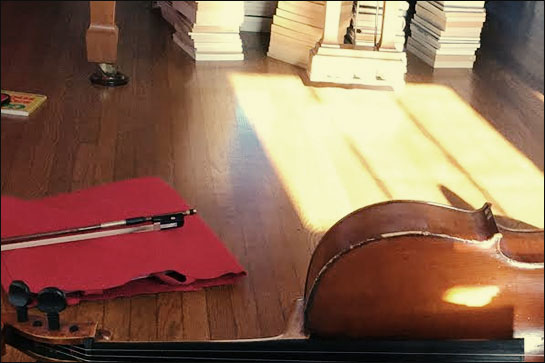Why homeschooling fails when it comes to diversity

The case against Harvard that’s going through the court system right now is fascinating. Rejected candidates are suing Harvard for systematic discrimination, and in order to defend itself, Harvard had to reveal salacious details of its arcane system for ranking applicants.
The Harvard dean of admissions and financial aid grew up working-class and then went to Harvard, and he is the person showing up to court and arguing passionately for the educational virtues of economic diversity. It’s impressive to hear his analysis and his dedication to social mobility.
I’m not saying that Harvard is successful at meeting this goal, but Harvard has successfully proven in court that the more diverse your classmates are, the more you learn. Also, Harvard showed how US schools systematically keep rich kids segregated from poor kids, which means poor kids don’t have a chance at high performance.
This could be a great moment for homeschooling. Homeschoolers sidestep the abhorrent, persistent segregation of US schools. So theoretically homeschoolers can experience more diversity than schools could offer. But in practice, I’ve found that homeschoolers gravitate to families in their economic bracket just like everyone else.
Homeschool parents don’t live in economically diverse worlds
New parents look for other people who provide a sense of familiarity during a time in life that is full of unfamiliar experiences. And parents seeking people like them turn into parents introducing their kids to kids like them.
Homeschool kids become friends with kids who share their interests, and kids sort themselves into interest groups based on background. Lacrosse doesn’t draw the same kids as football. Gymnastics doesn’t draw the same kids as cross country. If we are being totally honest, the richer you are the more beneficial it is to have an interest that poor people can’t do—there’s less competition.
Also, homeschool kids become friends with kids who are preparing academically in similar ways to them. SAT prep, or AP chemistry, or a second language not spoken at home. These are courses that are expensive to undertake as a homeschooler. I have found that by the time kids are teenagers, homeschoolers are sorted by economic advantages in a similar way to kids who go to school.
Homeschool parents seek stability over diversity
The great thing about diversity is it gives you a new frame of reference by creating intellectual and emotional instability and disruption. But homeschool life is about family stability and low-conflict education. Of course, because kids need stability so they can discover who they are. And too much instability actually undermines the natural teenage need for self-examination.
I read in Inside Higher Ed that a student at NYU said it’s easier to have class discussions without black kids present. There was outrage, of course. It’s not OK to say that. But it’s true that it’s easier. We have data to show that diverse groups are innovative and creative. But working in homogenous groups is easier.
Adults naturally gravitate toward homogenous groups, so it makes sense that we’d push our kids that way as well. It’s like how we think of New York City as grand and inspiring—like the picture up top—but actually it’s hectic and difficult and full of conflict and compromise. Like this:

As homeschoolers, we should confront our fear of diversity
In order to teach kids to appreciate diversity in a workgroup, kids need to appreciate the difficulties of innovation. Innovation is disorienting, disheartening, and high risk. Parents don’t teach that stuff to kids because it’s too hard to watch your kid go through that. In fact, most adults don’t willingly put themselves in difficult situations, and most adults don’t need to problem solve in diverse groups.
Homeschooling solves a lot of problems with the education system. But we still need a way to help kids practice getting into really difficult situations and then persevering when they find the situation even more difficult because they have to work in a diverse group to come to a solution.



Let’s consider politics:
Are all the big name Democrats & Republicans people who were homeschooled?
Because they are in really difficult situations & conflicts… Do I see them persevering? because they have to work in a diverse group to come to a solution…. how often do you see them work together to come to a solution? Isn’t that the point? They need to work together, with all the diverse people, whether narrow or liberal minded, correct? Why isn’t it working better? Maybe they were all homeschooled too?
Pretty sure every politician is part of a team. Campaign manager, aides, confidants, strategists, PR experts, tacticians, party reps, etc. Just because you see politicians posturing about their differences from other politicians doesn’t mean they aren’t already working in a diverse group. Publicly demonstrating what makes a candidate different is classic branding.
I think it’s true that it is easier for white students to have class discussions without Black students around. But it would benefit everyone who finds it easier to consider WHY this makes it easier for them. Like, what are they saying in these discussions that they don’t want to say in front of a Black person? And WHY don’t they want to say those things in front of a Black person? Do they hold views that they *know* are offensive to Black people? Or want to say things that are offensive to them? If not, then why is it easier to have a discussion without them there?
I found in art school that even very leftist white students often held, and expressed, racist views. These were kids who would never in a million years have thought of themselves as racist. But it’s just so prevalent.
Reverse everything you just said. Does that make it okay? I don’t appreciate racist references.
This article was obviously written by someone who has a very limited knowledge of homeschooling, and all the programs that are available for parents who want to homeschool. Including programs that are both economically and culturally diverse. It’s just a matter of doing your homework. My grandchildren are homeschooled through a program called Classical Conversations. They participate in a classroom of both economically and culturally diverse students one day a week. They also attend picnics, and go on nature hikes and field trips to the museum and the zoo with these same students. In fact, I would say that the students’ experience in diversity is much richer in this homeschooling program than it would be if they attended a public school in a community that is most likely not culturally diverse. In other words, most white students live in white neighborhoods, and most black students live in black neighborhoods. While there may be some economic diversity, there is usually very little cultural diversity. Thirty-five years ago, there was something called busing that was supposed to fix that along with improving the quality of education for black students. Except in rare instances, the program was a failure nationwide. Homeschooling, on the other hand, has been quite successful at bringing students of all economic and cultural backgrounds together. Moreover, my friends who teach in public schools tell me that when a student that has been homeschooled enrolls in the public school system, they have no problem assimilating with other students, and in most cases, they are much farther advanced scholastically than the students promoting from other public school classes.
It is really sad how identity politics has made it so hard for people to learn and work together. Why does a person’s phenotype have to matter when it comes to conflict resolution? Most people care about the same things at the end of the day! So sad to hear that white people feel they cannot accomplish anything with black people around. I personally tend to judge people on their character and what they have shown me vs lumping every white, black, etc. into a group. True many blacks have drank the liberal-victim-whoa-is-me mentality tea that the left has pushed for decades just as many whites have been brainwashed by mass media to believe that they are superior (as evidence by the writer of this post). I urge homeschoolers to teach your kids to judge people individually. Dont assume things about people baised on superficial things like skin color or status. It is incredibly frustrating to be with a group of white people and get treated differently. Even if the ‘different’ is preferential treatment. Treat folks according to their behavior. Leave your presumtions about the race of people behind, teach your kids that there are other people in the world with different opinions whether you agree with them or not. We can accomplish things with folks we fundamentally disagree with. Especially if we can see past ourselves. Some people just need to learn to get over themselves. We work with people everyday that we dont agree with but somehow things get done.
When I was in grad school, I took this class called “Women, race, and the organization.” We had a diverse class. The class also included two exchange students from Africa and one from Asia. On the day we discussed race, everyone was uncomfortable and afraid of saying the wrong thing. Not just the white people, but everyone. Except the two women from Africa, who after a few minutes asked us what was wrong with all of us this week. They really didn’t get why we were acting weird. And then it got easier to converse and people shared their experiences. I’m not sure that could happen today (this happened in the early 2000s. The student who said it was easier to have discussions with black students there was right. And it would be easier to have discussions without white students if you are not white. But easier doesn’t get us where we need to go.
I mentor a 17-year-old boy who feels he gets discriminated against because he is a white male. He doesn’t. He gets discriminated against because he comes from a poor family and he wasn’t taught the skills at home that aid in success in school. But I think he should be able to say how he feels because he won’t learn what he needs to if he doesn’t have someone to show him differently.
The idea that people don’t even know why they are being discriminated against is really interesting. I think that happens with women at work as well. When men have bad social skills they think they are doing something wrong at work. When women have bad social skills at work they think men discriminate against women. Diversity and discrimination have so many layers.
Penelope
The argument seemed to be that children who are homeschooled have trouble adjusting to a diverse environment as adults. I find the opposite is true. For one thing, children who are homeschooled participate in very diverse communities from the time they start their formal education. In the Classical model, they also start public speaking at that age. Furthermore, parents who homeschool come to the “Classical Conversations” communities from all ethnic, social and economic backgrounds. It is not unusual for a classroom setting to include white, African-American, Latino, African, Jewish, and Asian students. This is the diverse community that my 14 year-old granddaughter has been a part of and has made oral presentations to since she was 5 years old. And I promise you that she has no trouble communicating in a culturally diverse room of people. I seriously doubt that she would have been exposed to such a diverse group of students in the public school system, much less started making oral presentations at the age of 5.
Kristine, You and I have already discussed that you are getting paid by Classical Conversations to post these comments. In fact, I posted about Christian curriculum today because you are so annoying.
Also, you’re out of your that you think your Classical Conversations grandkids have Jewish kids in their community. Jewish parents do not homeschool their kids so they can use a Christian curriculum.
What I’d really like is for you to write a guest post here about why Classical Conversations need to pay someone like you to say good things about them.
Penelope
Not very sure what home education world you walked through to gain info for this essay. We home educated our children through the 80s, 90s, through 2013. We were involved with multi county support groups the ranged from metro urban to suburbia to rural. We have also been part of a national home education association. Our experience in all these arenas is that home educated kids tend to have a very diverse circle of friends and aquaintences, which tends to continue into young adulthood. Ethnicity, economic status and geography has little bearing outcome and association.
You say, “Homeschool parents don’t live in economically diverse worlds,” but I’d argue that’s not necessarily by choice any more than kids in a private school. It’s the reality of the cost. Low-income families are not likely to be able to afford private school tuition. Low-income families may not be able to afford to live off of one parent’s income while the other stays home to homeschool the children. Or afford daycare during school hours while the second parent works. Or the situation is a single-parent family where it’s just not feasible. It’s not intentional sheltering from diversity. It’s just how it is. Of course, ideally, private school or homeschoool parents should be aware of this shortcoming and seek to provide additional experiences for their children to allow them those opportunities to work with kids from other backgrounds. In our state, homeschoolers are allowed to join public school sports activities. That would be a great opportunity to experience working together in a diverse group. You give a lot of good reasons why diversity is important and beneficial, but you don’t give any solid evidence for your conclusion that homeschoolers don’t have that, other than personal observation, which isn’t really a sufficient source.